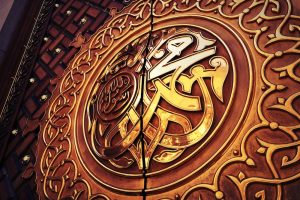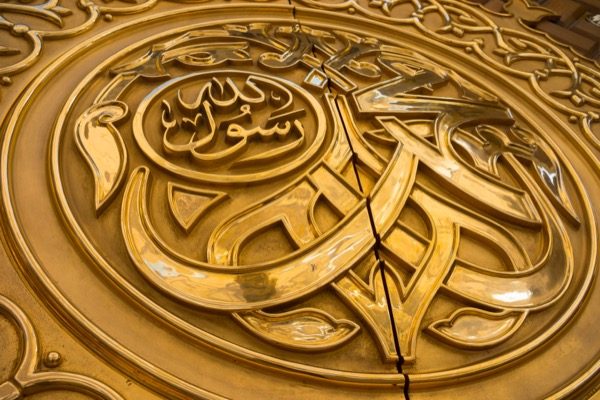His Holiness (aba) narrated incidents of the Promised Messiah’s (as) worship of God which he did in emulating the example of his master, the Holy Prophet (sa).
Islam
The Promised Messiah (as) describes the high status of the Holy Prophet (sa), and the reality of his seeking of forgiveness.
An inspiring example of true devotion to the Holy Prophet Muhammad (sa).
An explanation of Sūrah al-Kahf’s connection with the preceding chapter.
Summary prepared by The Review of Religions After reciting Tashahhud, Ta‘awwuz and Surah al-Fatihah, His Holiness, Hazrat Mirza Masroor Ahmad (aba) said that...
We are currently going through a period of time – the signs of which were foretold over 1,400 years ago in the Holy Qur’an.
Summary prepared by The Review of Religions After reciting Tashahhud, Ta‘awwuz and Surah al-Fatihah, His Holiness, Hazrat Mirza Masroor Ahmad (aba) said that...
Summary prepared by The Review of Religions After reciting Tashahhud, Ta‘awwuz and Surah al-Fatihah, His Holiness, Hazrat Mirza Masroor Ahmad (aba) said that...
Summary prepared by The Review of Religions After reciting Tashahhud, Ta‘awwuz and Surah al-Fatihah, His Holiness, Hazrat Mirza Masroor Ahmad (aba) said that...
His Holiness (aba) said that those who spend for the sake of the faith benefit not just themselves but the entire nation.
What is the true status and rank of the Holy Prophet Muhammad (sa)?
The relationship between this chapter and the preceding one is discussed and how some commentators have erred in their understanding of this.
His Holiness (aba) said in order for us to attain the love of God, we must follow the perfect example of the Holy Prophet (sa).
As God Himself has testified that the Holy Prophet (sa) is the perfect example for us, we must follow that example and adhere to everything that the Holy...
Hazrat Mus’ab bin ‘Umair (ra) was an ardent devotee of the Holy Prophet (sa) who left behind a life of luxury for the sake of his faith.











